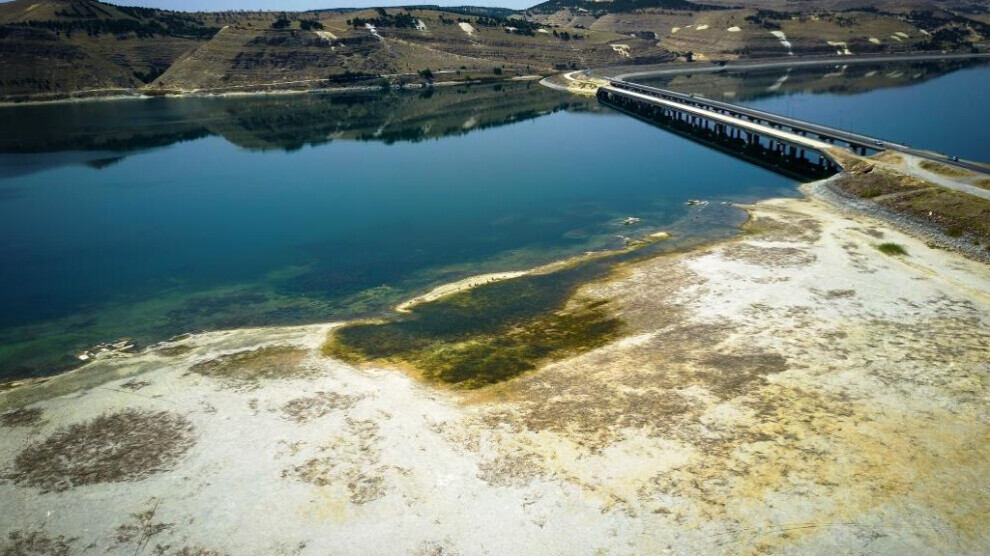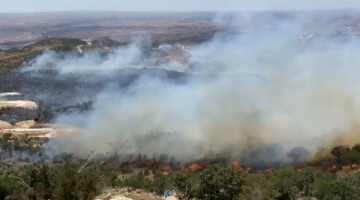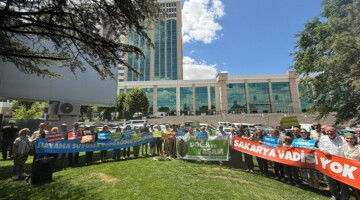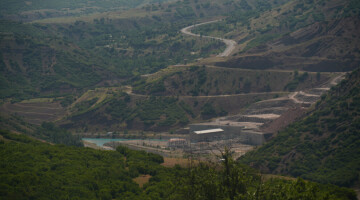The Syrian Observatory for Human Rights (SOHR) reported that the water level in the Euphrates river is alarmingly decreasing, amid growing fear among the region’s residents of environmental disaster and unexpected consequences. The observatory noted that the water level in Euphrates river is down by five meters for the first time ever at a time when the Turkish government continues seizing Syria’s share of Euphrates water. However, no action has been taken, despite the human rights organizations’ appeals and the residents’ calls for releasing water supply.
According to the agreement signed between Syria and Turkey in 1987 regarding the Euphrates River, Syria’s share of water coming from Turkey is supposed to be 500 cubic meters per second (2500 barrels). However, less than 200 cubic meters of water now reach Syria.
On Sunday, SOHR reported drought in large spaces along the Euphrates river as Turkey deliberately continued retaining Syria’s share of water with the aim to drain the Jazeera (Cizire) region. Accordingly, considerable damage plagued the farmlands in the region, affecting two million and half people as well as the suspension of power generators. Meanwhile, popular anger is growing, amid the residents’ demands to the Turkish government to release Syria’s share of water of Euphrates river, SOHR added.
A day earlier, SOHR reported that the water pumps in Ma’adan Atiq, Ghanim al-Ali in eastern, and Dabsi Affan in western Raqqa were put out of service due to the ongoing drop in water level in the Euphrates river in Raqqa countryside, which is under control of regime forces, as Turkey continued retaining water running through its dams to Syria.
On the other hand, power outages plagued the entire areas under the control of the Autonomous Administration because of the suspension of power turbines in the stations of Tabqa dam.
According to SOHR sources, the city of Heseke was suffering a blackout for the third consecutive day, as electricity was available for only two hours a day. Meanwhile, power outage in the other areas controlled by the Autonomous Administration lasts for long hours.
SOHR warned against an environmental catastrophe threatening food security in the Jazeera region and a humanitarian crises which poses a threat to nearly two million and half people in different areas in Raqqa, Heseke, Deir ez-Zor and Kobane.















